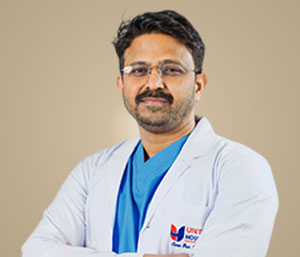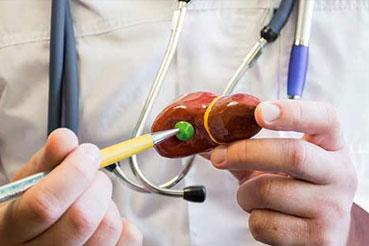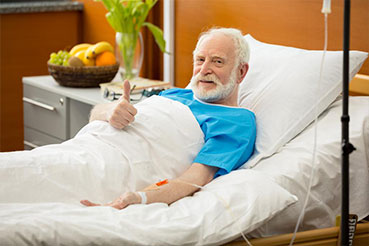The Department of General Surgery at United Hospital provides surgical interventions which focus on the gastrointestinal tract, endocrine system, colon, liver, and other major parts of the human body. Our department provides its patients, with the services employing cutting-edge surgical care. The use of advanced techniques helps in the speedy recovery of the patients with a minimal amount of tissue damage, minimal blood loss, reduced risk of developing an infection, and hence, minimal pain and discomfort. The general surgery team has its expertise in providing patient safety and satisfaction by using all the advanced and latest diagnosing and surgical techniques.
Treatment
 Colonoscopy
Colonoscopy
A colonoscopy is a procedure that examines the large intestine (colon) and the rectum for changes or abnormalities. A long, flexible tube (colonoscope) is placed into the rectum during a colonoscopy. The doctor can see the inside of the colon thanks to a tiny video camera at the tube's tip.
 Laparoscopic Surgeries
Laparoscopic Surgeries
 Oesophagectomy
Oesophagectomy
Oesophagectomy is a surgical method for removing some or complete swallowing tubes between the mouth and stomach, which is then reconstructed using part of another organ, usually the stomach. Oesophagectomy is a common treatment for advanced-stage oesophageal cancer and occasionally for Barrett’s oesophagus, in case aggressive precancerous cells are present. An oesophagectomy may also be recommended for various non-cancerous conditions where the conservative management failed or after ingesting the material that damages the oesophagus lining.
 Gastrectomy
Gastrectomy
The surgical removal of part or all of the stomach is known as a gastrectomy. A gastrectomy may be recommended by your doctor to treat cancer, benign tumours, severe ulcers, and other stomach-related disorders. A gastrectomy is also a type of bariatric surgery (weight-loss surgery).Gastrectomy procedures include partial gastrectomy, total gastrectomy, and sleeve gastrectomy, among others.
 Intestinal Resection
Intestinal Resection
It is a surgical procedure done to remove any part of the bowel. This includes the small and large intestine or rectum. It is done to treat diseases and blockages of the large intestine along with various other conditions.
 Colectomy
Colectomy
Colectomy is a surgical procedure where a part or all of the colon is removed. Colectomy is advised to prevent and treat any disease or conditions affecting the colon or large intestine. There are various types of colectomy operations:
- Total colectomy: This procedure involves the removal of the entire colon.
- Partial colectomy: This procedure involves removing part of the colon. It is also called subtotal colectomy.
- Hemicolectomy: In this procedure, the left or right portion of the colon is removed.
- Proctocolectomy: This procedure involves the removal of both the colon and rectum.
 Hepatico-Jejunostomy
Hepatico-Jejunostomy
A hepaticojejunostomy is a surgical technique that connects the hepatic duct to the jejunum, the middle region of the small intestine (anastomosis). The procedure is carried out under general anaesthesia. The patient may need to be admitted to the hospital for up to a week. Oral diet is usually started after 1-2 days, and by 5 days after surgery, the patient is on a normal diet.
 Total Proctocolectomy
Total Proctocolectomy
Total proctocolectomy is a surgical procedure done to remove the rectum. This procedure is done to treat rectal cancer. If a person is suffering from rectal cancer, the treatment will depend on location of the cancer, its growth, as well as other conditions.
 Shunt & Devascularization Surgeries
Shunt & Devascularization Surgeries
Devascularization procedures are performed to control bleeding from varices in the esophagogastric region. This does not control bleeding from ectopic varices, nor do they treat the underlying condition. & a shunt is a hollow tube placed surgically in the brain (or occasionally in the spine) to help drain cerebrospinal fluid (CSF) and redirect it to another location in the body where it can be reabsorbed. Shunt procedures can address pressure on the brain caused by hydrocephalus and relieve the symptoms such as mild dementia, gait difficulty, and lack of bladder control. There are many types of shunts available, like lumbo-peritoneal shunt or ventriculo-peritoneal or, ventriculo-pleural shunt, ventriculo-atrial shunt, etc.
 Ileal Pouch Anal Anastomosis
Ileal Pouch Anal Anastomosis
This is a surgical procedure, performed to restore gastrointestinal continuity after surgical removal of the rectum and colon. Various conditions like inflammatory conditions, infection, or cancer, may necessitate the complete surgical removal of the rectum and colon.
 Biliary Strictures Surgeries
Biliary Strictures Surgeries
Biliary stricture happens when the bile duct gets narrower or smaller. Bile is a substance that helps in the digestion of fatty food. A narrowed bile duct makes it difficult for bile to pass to the small bowel and causes bile build-up. Surgical procedures done to correct this abnormality are known as biliary strictures surgery.

 (+91) 7022316664
(+91) 7022316664  Emergency: (+91) 80 4566 6616
Emergency: (+91) 80 4566 6616 






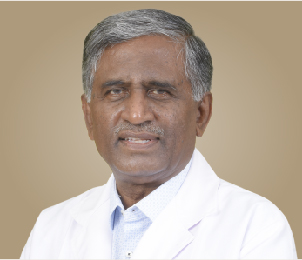


.jpg)
.jpg)
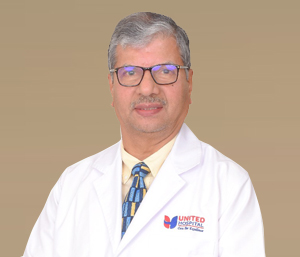
.jpg)

